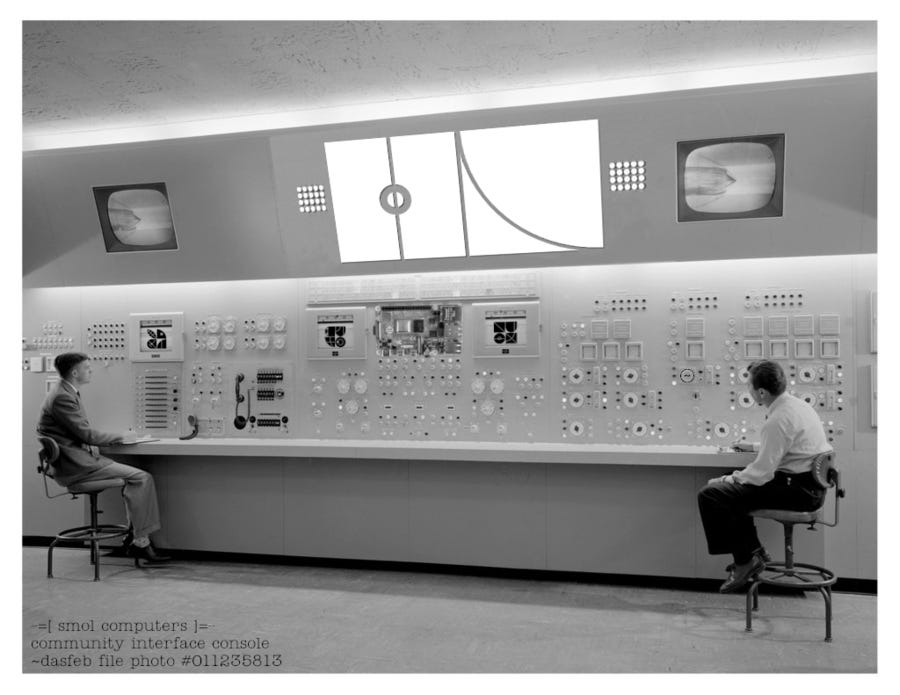My apologies for dipping into December. Another messy curation representative of a messy month. Invitations to be a member of my commune’s leadership are open, drop a line if you are interested in building this with me <3. I hope you find some interesting content below:
…just straight up fun reads
Taco Bell Quarterly - a literary mag that’s surprisingly amazing that’s grounded by Taco Bell.
Familiarity and Belonging - nice read about being content with your immediate surroundings, that’s at least how I read it.
Did a deep dive on small creative design and software studios that try and build intentionally. This is a great web of thoughts on the topic by someone who helps run Tiny Factories.
…on the Metaverse
If you aren’t aware of the metaverse as concept yet, get ready. I’m super bullish that this single term will be a huge (and encompassing) term for the future. Most essentially, the metaverse is a fusion of the digital and physical world (both bringing the physical world to the digital and vice versa). This isn’t simply applying a layer of digitization to the physical though, it is quite literally the synthesis of these two realms. If this sounds at all interesting to you (for those of you interested in digital products and software, I think you will!) check out these two pieces:
A VC’s take on the industry moving forward. Long but very thorough and covers more than Unity!
…on politics (‘Theories of History’)
Everyone has a theory of history, in that everyone has an explanation of why the world is how it is and an understanding of how the world changes and has changed. Everyone has to: without an understanding of how the world works, no matter how faulty, implicit, or subconscious, we would be prohibited from acting in what we believe is the right way to achieve our goals, whether big or small. Few people could tell you plainly that they are social or technological determinists, or adherents of great man theory. But everyone, if asked, can give reasons why some event or another happened, and whether, or why, it might happen again in the future.
We don’t just explain things with our theories of history. We act on them. If you believe that individuals have the power to significantly shape history, for example, you might be more inclined to make things happen yourself. If you believe that technology drives historical change, you might specifically try to invent new technologies. If, on the other hand, you believe that the fate of the world has already been decided, or if you believe that history is inevitably heading in a certain direction, you may be less inclined to take a stand. After all, if it’s going to happen, then it’s going to happen.
…a lot of thoughts relating to design and human-computer interaction (HCI)
What if one took up the study of computation not just as a form of reason, but as a form of rhetoric? Wendy Chun writes…
A piece about dopamine games (designing for addiction). This also introduced me to the concept of finite vs. infinite games. Also written by Mario!
Another piece about designing away from addiction (vs. the hook side linked above).
How Discord changed digital communication and online communities.
On office design! Discusses productivity and workers, labor alienation, and the disposability of workers. All of this is covered through the analysis of WeWork quantifying the office place. A pulled quote near the end of the piece:
The badges record speech patterns, movement intensity, and physical proximity between badged employees and tagged office locations. Algorithms translate raw and relative quantities of frequency and distance into metrics like “team integration” and “employee exploration.” These observations are presented alongside information harvested from “data exhaust”: not only the emails sent, but also the emails left unsent; not only the files accessed, but also abandoned searches. Like WeWork’s spaces, workers are evaluated not only by the actions that contribute directly to revenue, but by the value that can be harvested from their interactions within a network of other workers, communications streams, and objects. During the study period, employees tracked by Humanyze help their companies monetize the previously non-monetizable by making it visible. But unlike data about area, temperature, and light levels, the data on workers is analyzed for the subjective qualities of dominance in a conversation or a lack of ambition. And unlike remodeling a conference room or reprogramming a thermostat, the power dynamics involved in remediating a person are not able to be flattened or ignored.
But algorithms have no allegiance to any system of management, no inherent hunger for profit, and no prejudice for human character. Just as algorithms have every capacity to promote productivity, so too do they have the capacity to sow chaos, stimulate delight, and disrupt and redirect the power of a worker. Literacy and fluency in the design of such technologies, dispersed among a diversity of interests and motivations, will begin to reflect other desires in the office, and in time the Internet of Things will instead be subsumed into the wider world of humans.
… my ending poem
It’s a little long, so I’ve shared the ending - which resonated with me the most:
Crime and Punishment by Kahlil Gibran
And how shall you punish those whose remorse is already greater than their misdeeds?
Is not remorse the justice which is administered by that very law which you would fain serve?
Yet you cannot lay remorse upon the innocent nor lift it from the heart of the guilty.
Unbidden shall it call in the night, that men may wake and gaze upon themselves.
And you who would understand justice, how shall you unless you look upon all deeds in the fullness of light?
Only then shall you know that the erect and the fallen are but one man standing in twilight between the night of his pigmy-self and the day of his god-self,
And that the corner-stone of the temple is not higher than the lowest stone in its foundation.





